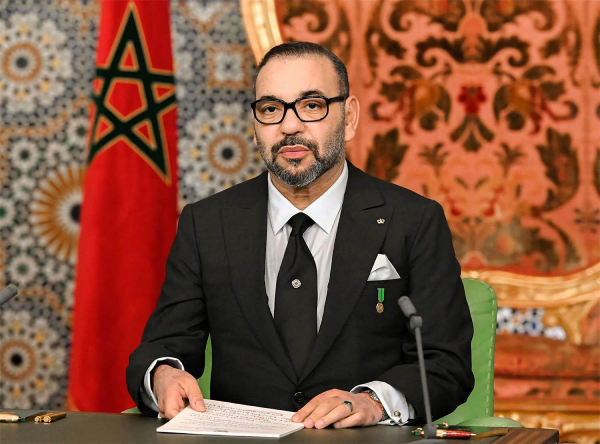On March 15, 2023, a Paris court convicted two French journalists of extortion and blackmail against the King of Morocco, King Mohammed VI.
Eric Laurent and Catherine Graciet were accused of seeking to extort several million euros from the king in 2015 in exchange for not publishing an embarrassing book on the Moroccan royal family.
Extortion
Laurent, a former correspondent for Radio France and Le Figaro magazine, reportedly contacted the king’s office to announce the publication of the book. Reports say the journalists then accepted payment of 80,000 euros and signed a commitment not to write anything more on Morocco.
However, the pair was arrested in Paris after allegedly giving a signed document to a Moroccan lawyer in which they asked for 2 million euros in return for burying the book and ceasing to “systematically harm Morocco” by their “writings and actions”.
The two journalists were each in possession of 40,000 euros in cash when they were arrested.
Other evidence against them centers on two audio recordings that were accepted as valid by the Court of Cassation, France’s highest court, in 2017.
Recordings as evidence
The recordings were made during a meeting in Paris between Laurent and a lawyer representing Morocco, who then referred the case to French justice.
The Paris Criminal Court sentenced the journalists to a 12-month suspended prison term and a fine of €10,000 each. They were also ordered to pay €80,000, which they received as a payment, and sign a commitment not to write anything further on Morocco.
Laurent, 75, on Monday admitted to a “moral error” before the court, saying he had “agreed to be involved in this case.” However, he denied having committed a criminal offense. Graciet conceded that the state of Morocco had swayed her with its financial offer.
The journalists say the recordings used in evidence had been faked and intend to appeal their sentence.
‘Entrapped?’
The case has caused controversy in France and Morocco, with some arguing that the journalists were entrapped by Moroccan authorities and that the case raises questions about press freedom and the relationship between journalists and their sources.
Laurent and Graciet had previously written a book in 2012, “The Predators,” which criticized corruption in the Gulf States. The book was banned in the United Arab Emirates, and the authors were reportedly threatened with legal action in Saudi Arabia.
In Morocco, criticism of the monarchy is a sensitive issue, and journalists have faced legal action and harassment for reporting on the royal family.
In 2019, Moroccan journalist Omar Radi was arrested on charges of espionage and undermining state security after reporting on protests in the country’s northern Rif region. Radi was released on bail but faces up to five years in prison if convicted.
The case against Laurent and Graciet has also raised questions about the ethics of investigative journalism and the boundaries between investigative reporting and blackmail. Some argue that the journalists crossed a line by demanding money in exchange for not publishing a book, while others argue that they were simply using the leverage they had to get a story.
‘Unacceptable’
The case has also highlighted the role of journalists as watchdogs and the importance of protecting press freedom. In a statement, Reporters Without Borders said that “whatever the nature of the dispute between the Moroccan authorities and these two French journalists, the use of blackmail to suppress a book is unacceptable, as is the prosecution of journalists who expose embarrassing truths.”
The case has also sparked debate about the relationship between journalists and their sources, and the responsibilities of journalists to protect their sources while also reporting the truth.
Some argue that the journalists had a responsibility to protect their source, even if it meant not publishing the book, while others argue that the journalists were acting unethically by using their source’s information to demand money.
